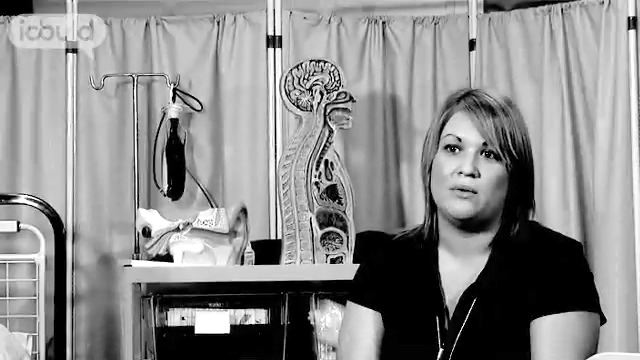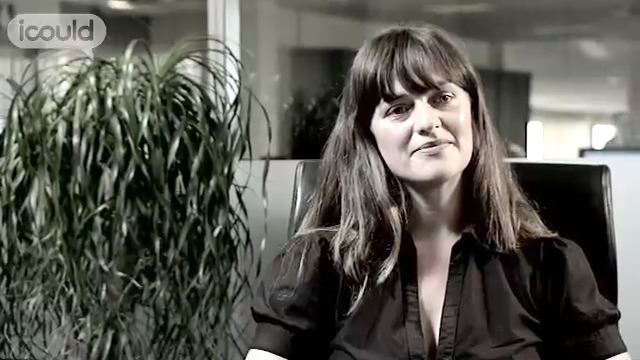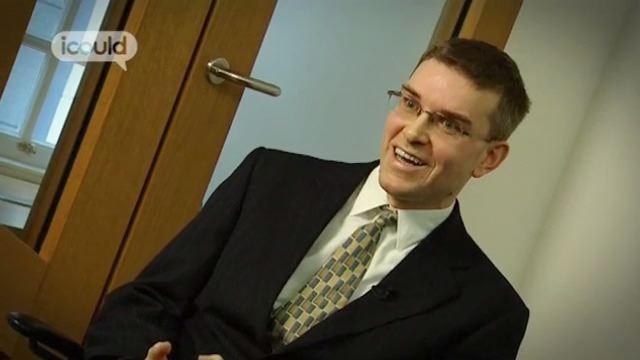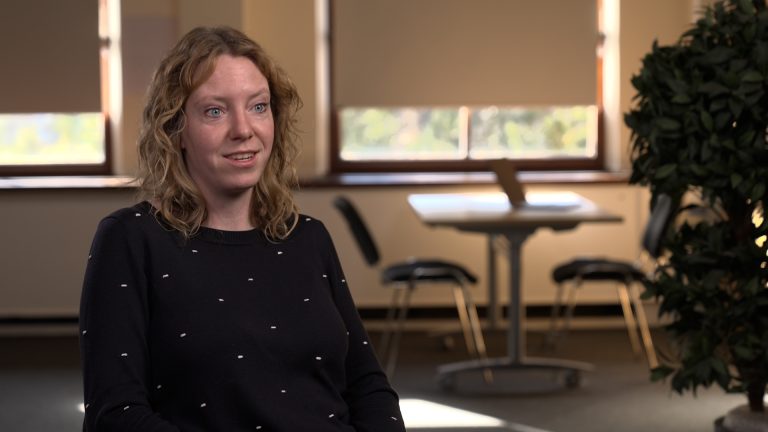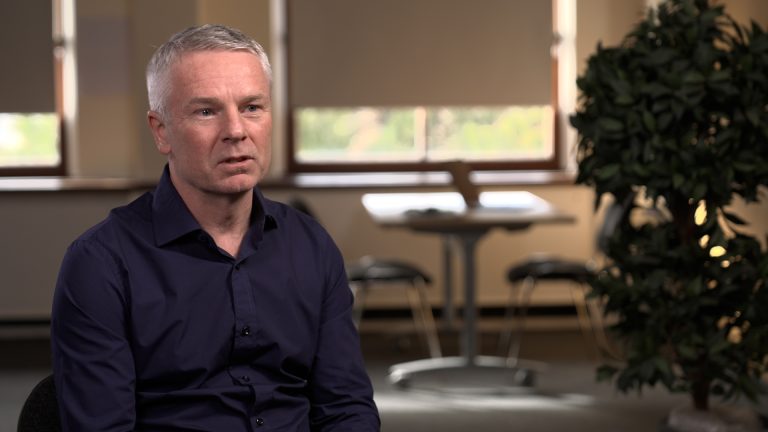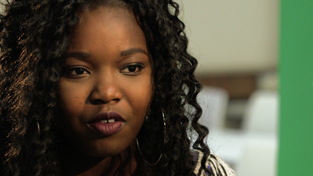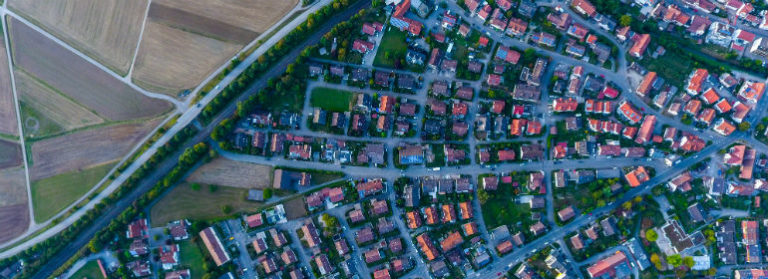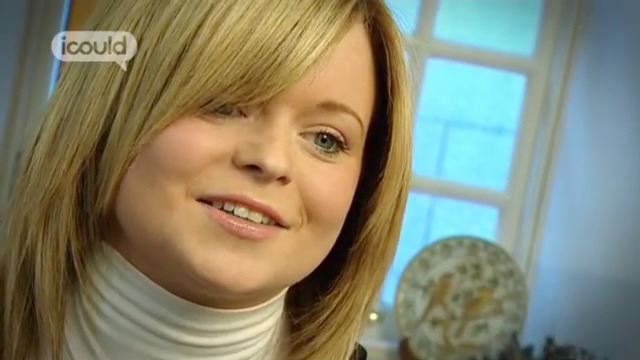Committee Clerk
Scottish Parliament
Terry S
00:00:02 My name’s Terry S I’m the Clerk to the Equal Opportunities Committee at the Scottish Parliament.
00:00:08 It’s everything about supporting the work of the equal opportunities committee from the basics such as organising the meeting room, making sure all the witnesses are invited, helping members with questions they want to ask of witnesses, right up to drafting reports for the members of the committee and also writing papers, suggestions for what, what the committee could undertake, so it’s very varied.
00:00:31 I got this particular job simply because I’ve worked in the parliament for eight or nine years, and there was a gap and I was asked to fill it. But I have worked in various parts of the parliament over the last eight or nine years. Worked in Brussels for a year, I worked very, very briefly in the media office, worked in the research side of things, I’ve been all over the parliament.
00:00:51 My favourite subject at school was modern studies, we had a fantastic modern studies department and there are five people from my school who went through that department who are now working in the parliament which I think’s testament to how good it was.
00:01:06 I then did politics at university, and even then there was still no Scottish parliament, luckily one did come around and I’ve been here ever since.
00:01:15 I’m only thirty five but I’m struggling to think back to advice I received at school. I do remember going in to a fairly dusty old careers office which was covered in posters about the army and the navy and banking etc. I don’t think I paid too much attention to that, I was the first person from my family ever to go to university, and to be honest I just went there from school cos all my friends were doing it. I’d no expectation of what it would be like when I got here.
00:01:45 Like I say the modern studies department’s fantastic, that stimulated an interest in politics and that’s why I went to university to do that subject.
00:01:52 Went to university, did politics, did politics then I went back to college a couple of years later to do radio journalism. Never in a million years would I have believed at school, even at university that I would have done radio journalism, cos I was incredibly shy, and it was almost a last I, a last gasp attempt to escape this workplace that I hated.
00:02:11 I just decided to go and do radio journalism, and when I was there that gave me so much more confidence because you had to go and interview people and then be broadcast across the airwaves. So that was a huge turning point and it led me I think indirectly into the parliament and gave me a lot more confidence there and in my general life.
00:02:29 Yeah I had a variety of jobs from pretty lousy summer jobs stacking shelves, working in a bank, filling out paperwork, and immediately before joining the parliament I was a journalist for two years, working in mainly broadcast journalism but some experience of print journalism as well.
00:02:48 There was things I didn’t like about school, it was a school of about sixteen hundred people, at secondary school, whereas a primary school was very small you knew everybody you knew all the teachers, it was quite a small playground everyone could look out for you, whereas you went to this massive secondary school and the gap between being an eleven year old boy and an eighteen year old boy, where you’d hear tales of them being out at the weekend and up to, all sorts, it was huge. And you got lost it was such a big campus and, yeah took a while to adjust. I wouldn’t say I regret it, now but, I didn’t enjoy it as much as I did when I went to university for example.
00:03:23 It’s perfectly normal not to have a clue what you’re doing, so don’t worry about that, because, particularly nowadays, there’s so many different jobs and, new jobs especially in IT and in technology that didn’t even exist five years ago, so it’s natural that they might not know what they want to do.
00:03:41 There’s been this huge move as everyone knows from going into the job that say you’re mum or dad did working down the mines or whatever to, huge array of career options open to you so, don’t worry if you don’t know.
00:03:53 Talk to plenty of people, find out as much as you can about all types of jobs, get work experience. It’s a fantastic thing to do. I probably learned more in two weeks in the workplace than I did at two or three years at university or college cos you’re actually doing the job so get as much of that as you can.
00:04:11 END
Terry Shelvin is Clerk to the Equal Opportunities Committee of the Scottish Parliament. He does the job that supports all the Committee’s activity. “I have worked in various parts of the parliament over the last eight or nine years: in Brussels; in the media office, worked in the research side of things, I’ve been all over the parliament.” He has a degree in Politics and has been a radio journalist.
More information about Records clerks and assistants
The UK average salary is £29,813
There are 37.5 hours in the average working week
The UK workforce is 47% female and 53% male
Future employment
- Examines and sorts incoming material
- Classifies, files, archives and locates documents and other records
- Copies or duplicates documents or other records
- Performs specialised clerical tasks in connection with conveyancing, litigation and the maintenance of medical records
